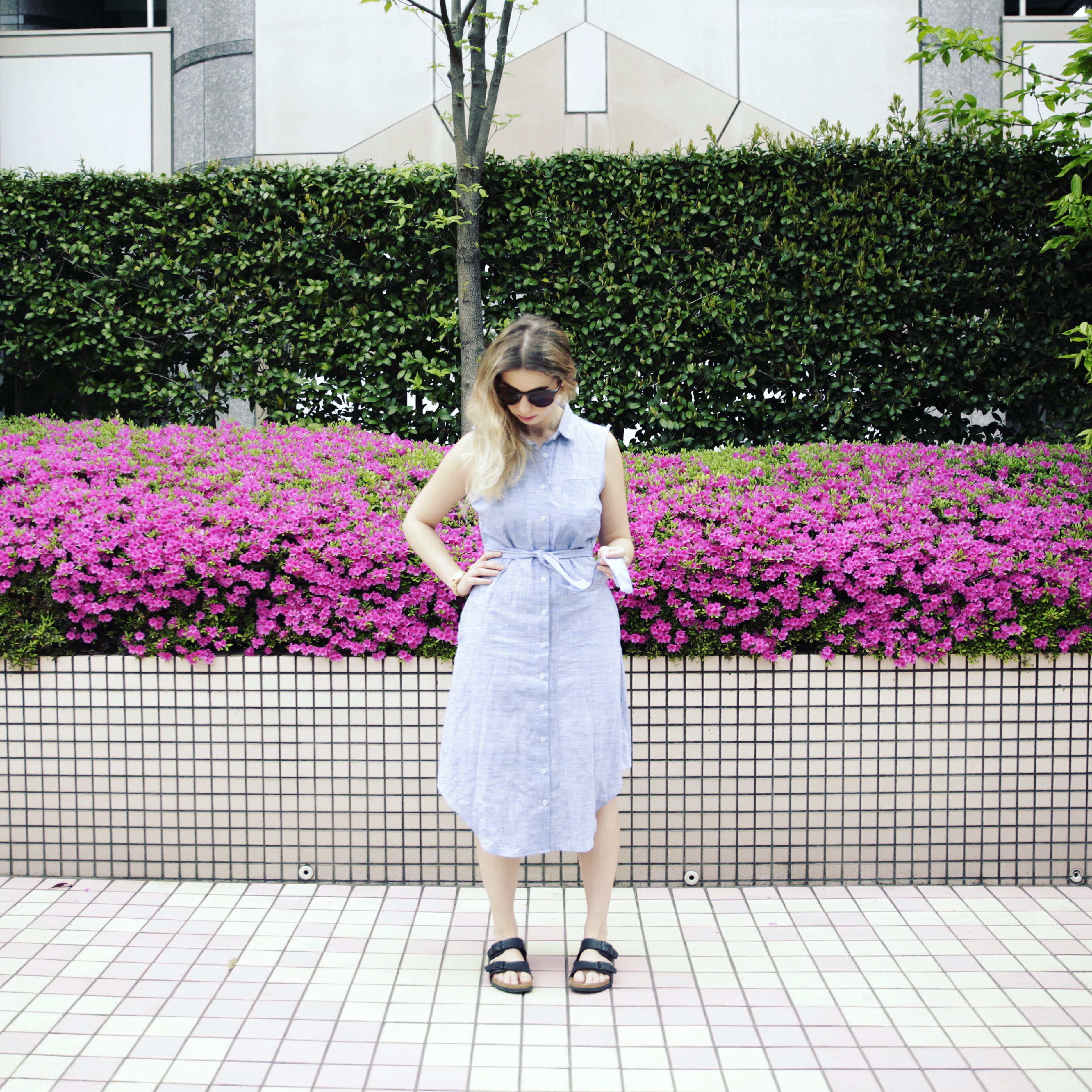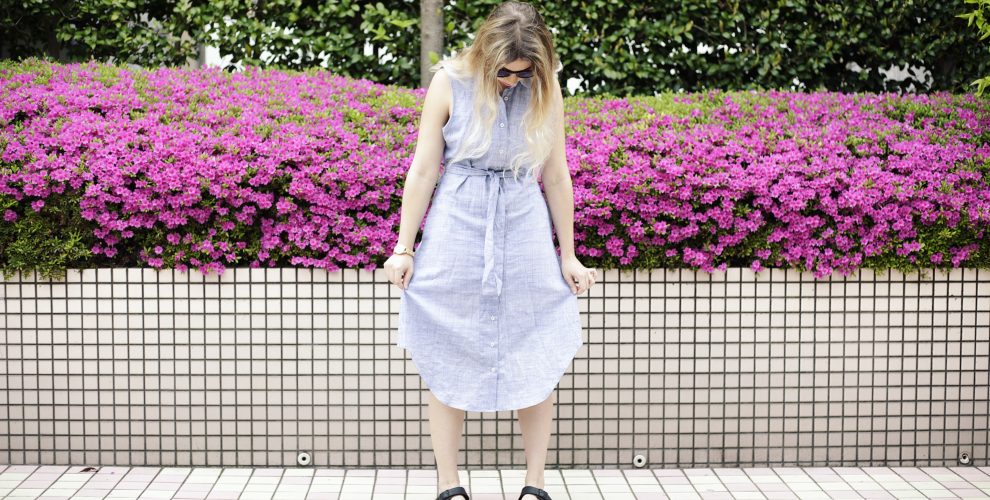The words ‘Who Made My Clothes?’ are on everyones lips during fashion revolution week, as together we question and demand more from an industry that needs to do better by the huge amounts of people in its employ. On April 24th 2013 the Rana Plaza Building in Bangladesh collapsed. 1138 people died, 2500 were injured and 42% of the injured are still unemployed and awaiting compensation. Before the collapse, workers were paid next to nothing and treated awfully. Cracks had begun to appear in the building the day before the collapse, workers were forced to work anyway or risk losing their jobs. Clothes that were made in Rana Plaza were for brands we know: Matalan, Primark, Zara, Mango, Walmart, J.C. Penney and Benneton were all listed as brands tied to the Rana Plaza factory.
Four years on, the problems are far from being solved. Sarah Labowitz does an excellent job of explaining why, in fact, a lot of major retailers literally do not know who made their clothes:
‘the brands’ lack of visibility into their own supply chains was not an accident—or really a mystery at all. People described to me an “open secret” of subcontracting that made many factories invisible to the brands. In this system of garment production, the brands place orders with hub factories, which then farm out production to a series of spoke factories. The brands only see the hub factory, not the spokes—or the workers in them.’
As long as fast fashion retailers don’t really know their supply chains, aren’t transparent about what they do know, and make no efforts to treat workers as real humans who deserve to be treated as such, then there will be a problem.
And that’s why today I am so happy to share one of my absolute favourite fair trade brands who work to a very different model, Jyoti – Fair Works.
Jyoti – Fair Works are a German-Indian fair fashion label. Based between Berlin and Londa and Chittapur in India, they produce fashion that is timeless, effortless and chic, whilst also being socially and environmentally sustainable. And they know who makes their clothes.


Jyoti – Fair Works are committed to knowing, and personally meeting, the people within their supply chain whilst also being incredibly transparent; providing a more than comprehensive breakdown of every step of their supply chain here. By knowing those they source from, they can both guarantee their clothes are produced in an sustainable way, but also that producers really do receive fair wage, good treatment, safe conditions and respect, with nothing being lost to middle men, corporations, or hub factories. Jyoti – Fair Works believe that total transparency is key in creating a more sustainable fashion industry, and a more just global economic environment, and I agree.
Their sewing workshop in Chittapur is on the campus of NGO Jyothi Seva Kendra, employing social disadvantaged women as seamstresses and providing them with full time employment, a fair salary, health checks and opportunities for training. in 2017 they also expanded production to a second site in Londa, taking their employee count up to 16 women in full time employment. Beyond just knowing a factory or business producing their clothes, each individual employee in both India and Germany has a profile on the Jyoti website, so you can truly know every individual that contributes to their clothes. Additionally, profits are reinvested into the education and wellbeing of Jyoti – Fair Works’ seamstresses, to continue to empower and equip them as they move forwards in life. The work day is from 10am – 5pm, giving the women flexibility around their families and school runs, and health-checks, seminars on women’s and labour rights, and English language courses are provided at regular intervals.


Jyoti – Fair Works also use GOTS certified organic cotton and natural dyes, sourcing exclusively from small family businesses and cooperatives who weave, imprint, and lovingly craft all their fabrics with traditional techniques. One of the things that makes the fashion industry so complex is the fact that there are so many stages of garment production, beyond actually making the clothes one has to go further back and understand who transforms raw materials into fabric, and how. Luckily, Jyoti – Fair Works details every partner they work with in their supply chain, tracing every inch of their production back to it’s source, and being totally open about what they know.
Sustainability also goes further than just raw materials, influencing design itself. Pieces are designed to be timeless and durable, making them last for many years of wear. Resources are also used responsibly to produce the minimum amount of scraps or waste.


Jyoti – Fair Works sent me their Kavita Dress, and how could I not love it? The handwoven organic cotton is made on a loom, and it is so nice to wear. I love it as a summer dress because the cotton is light and breathable (another piece of ethical fashion that fares well in the Japanese humidity!), but I know it could easily be adapted to colder days with some layers. It’s fun and flattering, but also super adaptable to whatever situation you might need it for, and I love the cut*. It’s effortless, elegant and timeless, I can’t wait to wear it a whole lot. But on top of all that, it’s just infinitely clear that the quality is so much higher than anything from a fast fashion retailer. When I made the switch to ethically made, sustainable clothing the first thing I noticed was that the new things I had were infinitely better quality, and you can tell from both how it looks and how it feels. This dress is a perfect example of that, I could tell from the minute I received it that it was made with care, love and a sense of durability.
There’s something about knowing exactly who made your clothes, and how, that makes what you wear have infinitely more value to you. When I wear something of higher quality and moral standards, I feel better wearing it. I love it more, and I love myself more. Beyond how this dress looks and feels, wearing clothes with that level of transparency brings a level of empowerment that fast-fashion-crazy-consumerism never can. And that’s why I love Jyoti – Fair Works. I hope more and more companies will follow their lead and commit to real transparency, ethical production standards, and knowing who makes their clothes. Because workers are real people, and they deserve to be treated with respect and dignity.
* Fun fact, my fashion illiterate boyfriend wanted to tell me that he liked that the cut had a vintage feel to it. Instead he ended up saying ‘it looks like something my grandma would wear’. Luckily, we cleared up the confusion pretty quickly.






5 Comments